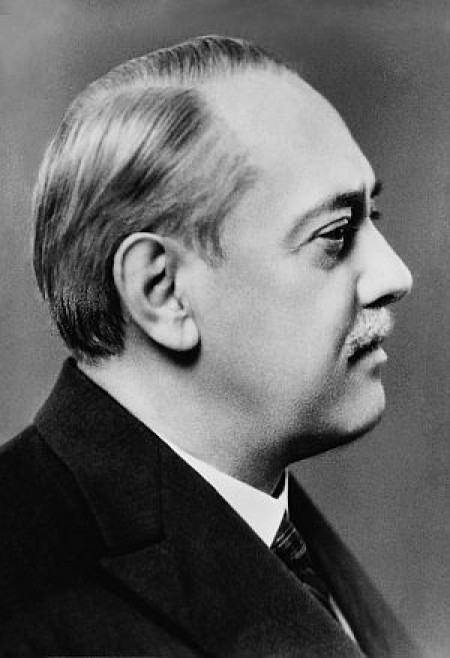
25 March 1877, Pozsony (Bratislava) – 29 March 1944, Budapest
Emánuel Hegyi pianist was one of the most reliable and most qualified professors of the Academy of Music between the two world wars. The artist-professor belonging to the generation of Bartók, Kodály and Dohnányi was born on March 25 in 1877 in Pozsony (now Bratislava). He was interested in music from his early childhood, he played the piano capably, even his teachers considered him to be talented, but finally he earned his degree from law school upon his family's advice, and started his career as a legal trainee at the court of law in Máramarossziget.
He decided though to change career at the age of twenty-nine: he moved to Budapest and enrolled at the Academy of Music in 1906 where he became a student of Árpád Szendy (piano) and Béla Szabados (composition). The conservatism and traditionalism of both of his professors had a strong impact on him. Szendy – who was a student of Henrik Gobbi and Hans Koessler and following that earned a Liszt-scholarship in 1883 being a student of Liszt himself for a short time, as well – established a master school by that time, placing the requirements of the so called brilliant school of the nineteenth century, the virtuosity and technical perfection in the center of that. The unfairly forgotten Béla Szabados (1867-1932) onetime student of Volkmann and Koessler was teaching for thirty-nine years at the Academy of Music, was the director of the Nemzeti Zenede (Music Secondary School) at the end of the 1920s, and won several composers' competition with his songs, choral works for male voices and string quartets, besides that. His professional knowledge – despite of his romantic style and language of music that seemed obsolete – was acknowledged by Bartók and Kodály, as well. He wrote the opera Mária in three acts together with Árpád Szendy in 1905.
Emánuel Hegyi earned his artist and teacher degree in 1910 and from then on he gave recitals regularly at his home country and in several European countries. He was appointed professor at the Academy of Music in 1914: he taught at the preparatory and artist classes, as well. His performances in Hungary were organized by the agency of Imre Kun called Koncert, being reputable and successful at that time. It turns out from the recollections of Imre Kun Harminc év művészek között [Thirty Years Among Artists] that Hegyi – being most often a performer of romantic compositions of Mendelssohn, Chopin and Liszt – performed regularly at the subscription concerts at the Academy of Music and countryside tours of the Koncert and received positive criticisms usually. ‘He retained the best traditions of the school of Szendy: the well-founded knowledge, colorful touch, manly power and broad dynamic scale. These features prevailed well in his playing.' – as the critic of the newspaper Újság wrote about him in 1922.
He retired in 1942 though continued teaching as a lecturer. The managerial of the Academy of Music acknowledged his pedagogical work of three decades with the award Nemzetvédelmi Kereszt (National Defense Cross) in 1942 and with Magyar Királyi Kormányfőtanácsosi cím (Hungarian Royal Government Counselor title) a year later.
He died in the sixty-seventh year of his life in 1943 in Budapest.
R. A.


